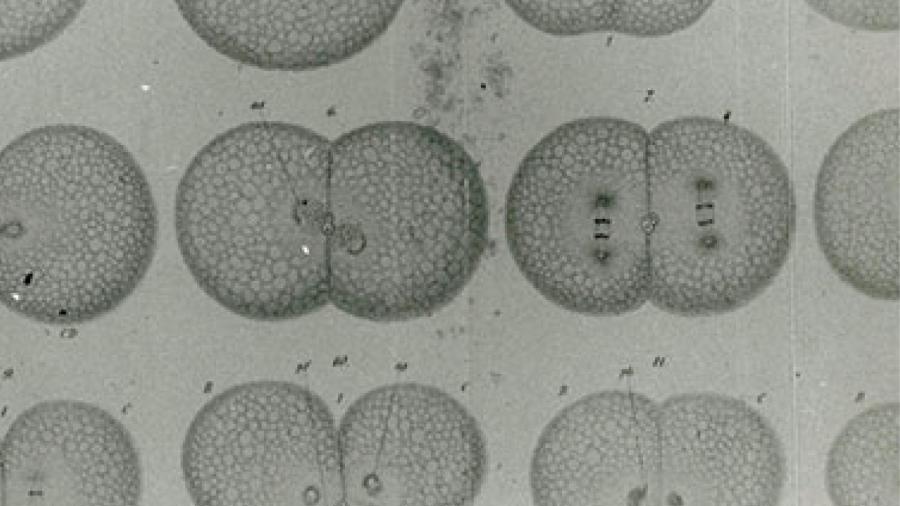
Embryo Project Wins HSS Education Prize
The annual History of Science Society meeting took place last week in Seattle, from November, 1-4 2018, in conjunction with the Philosophy of Science Association biennial meeting. Both meetings saw strong participation by scholars from the Center of Biology and Society.
At the History of Science Society meeting, PhD student Paige Madison presented a paper in a session she moderated titled Expeditions, Specimens, and Ideas. Her paper “Fossil Tug of War: Evolution and Controversy at Liang Bua,” was presented with a prop—a plaster cast of a fossil hominid skull for attendees to examine first-hand. Postdoctoral fellow Abraham Gibson contributed by moderating the session Rethinking the Historiography of Biology; and CBS graduate Erica O’Neil served as commentator for the session Standards and Experts: Knowing and Regulating Risk.
For the Philosophy of Science meeting, CBS professors Brad Armendt and Beckett Sterner contributed, with Armendt moderating a session titled Probability and Statistics, and Sterner presenting a paper titled “Evolutionary Species in Light of Population Genomics” in the session Species and Lineages. CBS grad students and alumni put their research on display in the philosophy of science poster session as well. PhD candidate Kelle Dhein presented a poster titled “The Role of Intentional Information Concepts in Ethology,” and former CBS grads Valerie Racine and Wes Anderson presented their work on “A Causal Representation of Gene Regulation in Cancer.”
The highlight of the meeting was when the History of Science Society awarded ASU’s Embryo Project with the Joseph P. Hazen Education Prize on November 3rd, 2018. The prize is generally awarded to individuals with exemplary teaching and educational service. This is the first time it has been extended to a group education effort like the Embryo Project.
The Embryo Project aims to communicate science to the public and train students to conduct scholarly research in the history of developmental and reproductive biology. The project achieves those goals through writing, editing, and scientific illustration seminars taught at ASU. The products of those classes are then published on its digital, open-access publication, the Embryo Project Encyclopedia (embryo.asu.edu) for public use.
At the award ceremony, former editors Dr. Steve Elliott and Dr. Erica O’Neil, accepted the award on behalf of the larger group. Elliott and O’Neil thanked the National Science Foundation for their support of the project and the Marine Biological Laboratory for helping to realize the project’s goals, before turning to the institutional support of ASU: The Office of the President, the Institute for Humanities Research, and the School of Life Science. After thanking organizations for their help, Elliott and O’Neil recognized the intrepid work of senior faculty at ASU, including Manfred Laubichler, Jason Robert, Ben Hurlbut, and Jane Maienschein. And extended broader recognition and thanks to the leadership of former editors and teachers: Nathan Crowe, Valerie Racine, Alexis Abboud, Kelle Dhein, Federica Turriziani Colonna, Karen Wellner, and Mary Sunderland; and current leadship provided by Carolina Abboud, Anna Guerrero, and Dina Lienhard.
Elliott ended the speech with a sentiment that articulates the broader goals and mission of the Embryo Project. “We believe that historians of science can have profound impacts upon public discourse of science. This award helps validate that belief."
Overall, their meeting provided countless opportunities to share research, engage with new ideas, and celebrate the success of the Embryo Project and other CBS endeavors.
More information: Embryo Project editors (https://embryo.asu.edu/)